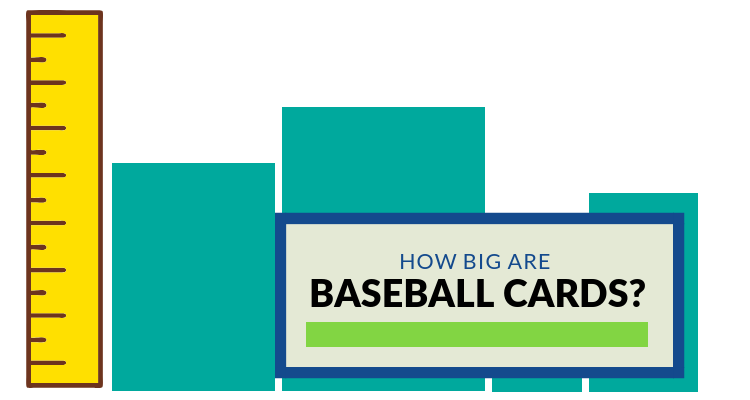Affiliate Disclosure: This post contains affiliate links. As I am a part of the eBay Partner Network and other programs, if you follow these links and make a purchase, I’ll receive commission. As an Amazon Associate, I earn from qualifying purchases.
A baseball card appraisal is the process of an unbiased third party reviewing your collection and placing a value on it based on its makeup.
When getting your cards appraised, it’s in your best interest to receive appraisals from multiple sources. And, as mentioned, you’ll want to have the party doing the appraisal to not have any “skin in the game,” as Warren Buffet would say.
How to get your baseball cards appraised
To get your baseball cards appraised, you need to first prepare for the appraisal either by taking photos, completing inventory, or both. You’ll then need to select the type of appraisal, which could include in-person or virtual services. Last, the appraiser will evaluate the cards.
Here are the details:
1. Prepare for the appraisal
Before you get your cards appraised, you’ll need to do some preparation, which will vary depending on the route you choose (more on that below).
This includes, but is not limited to taking photos of the cards you wish to sell and/or taking inventory and putting together a list of the cards you wish to sell, with their conditions.
Card tracking and inventory software can help immensely.
2. Think about the type of appraisal you need
When it comes to getting your cards appraised, you have a few different options to consider. Each comes with pros and cons, which we will get into in the next section.
- Online with photos: Submit photos of your cards to an appraisal service. They’ll look them over and then return a value to you.
- Online with a checklist: Similarly, you can simply submit a list of your cards if you don’t have photos and aren’t really comfortable with scanning baseball cards.
- In-person, at a card shop: This is where you’d find a local card shop and then physically bring your cards in for appraisal. You’ll probably want to make an appointment to do so, especially for larger collections.
- In-person, at a card show: Card shows are great for buying and selling baseball cards, but they are also venues that bring together card experts from all over. Some of these experts do in fact offer appraisal services, so you’ll want to keep tabs on upcoming shows and attendees.
- In-person, at your home: That’s right, you can also arrange for an appraiser to come to your home, which is great for those collections that can’t be easily transported.
- Via mail: If you have the stomach, you might be able to ship your cards to an appraiser. I mean, people send valuable cards to grading card companies all the time, so I guess it’s not all that different. Still, though, you’ll want to certainly but in the work and research to ensure this is a safe option.
3. Choose an appraisal service that suits you
As mentioned above, the great thing is you have options when it comes to appraising cards. So, you’ll certainly want to do due diligence while comparing the different services to ensure you choose the best for you and your unique circumstances.
There are online baseball card appraisal services through sites like Just Collect. In this case, getting your appraisal started is as easy as filling out the form and clicking a button.
If you don’t have photos of your cards or don’t want to spend time putting them through the scanner, etc., you can usually have the appraiser look at a list of cards. Note, you can also do that with Just Collect, as mentioned above.
Many baseball card shops also offer collection appraisals. With this option, you’re putting your cards into the hands of what should be a knowledgeable, trustworthy individual. The odds of them turning around and closing down their business just to run off with your collection should be low, and, they should have a very good idea on what cards are selling for. The problem is, there are fewer and fewer card shops every day.
One other thing to note is, the cards sold in shops are typically more expensive than those found online, given the overhead costs of running a physical brick-and-mortar cards store. So, don’t be put off if you receive a value for your cards, and then see the same cards in the shop’s case being sold for more money.
What are the pros and cons involved with appraisal?
Pros: The overall benefit of getting your collection appraised is to attach some sort of tangible value to it. In addition to the cases above, this comes in handy if you want some sort of baseline value for a collection you know you will be building. Attaching value is also a reason why you should get your cards graded.
Cons: The cons are mostly related around the legitimacy of the actual appraisal value. Cards can quickly increase or decrease in value within a week’s time, especially with collections mostly made up of modern sets. On the other hand, vintage cards will remain more stable, if you will.
Another con is that your appraisal is, well, a con. Meaning, be cautious of anyone wanting to appraise your collection and then asking to immediately buy it after doing so. As you can imagine, any unsuspecting individual with a lack of card value knowledge can easily be taken advantage of during this process.
So, what’s the worth?
Have experience with any of these options or something different entirely? I’d love to talk about it in the comments!



